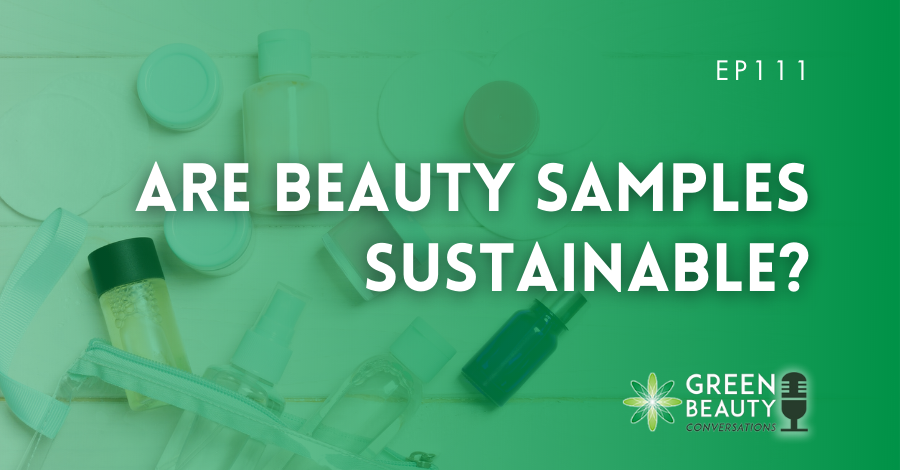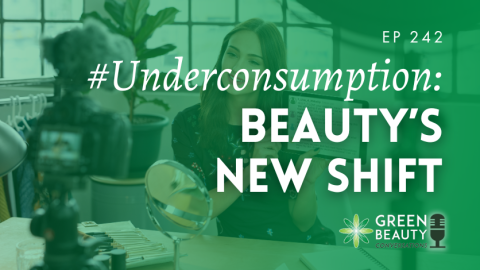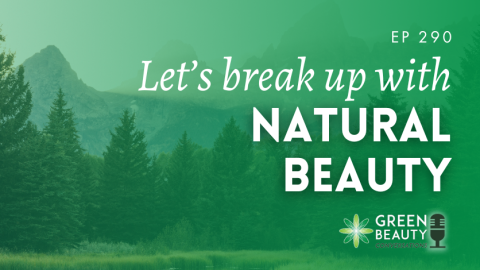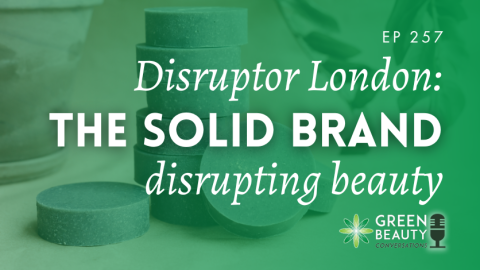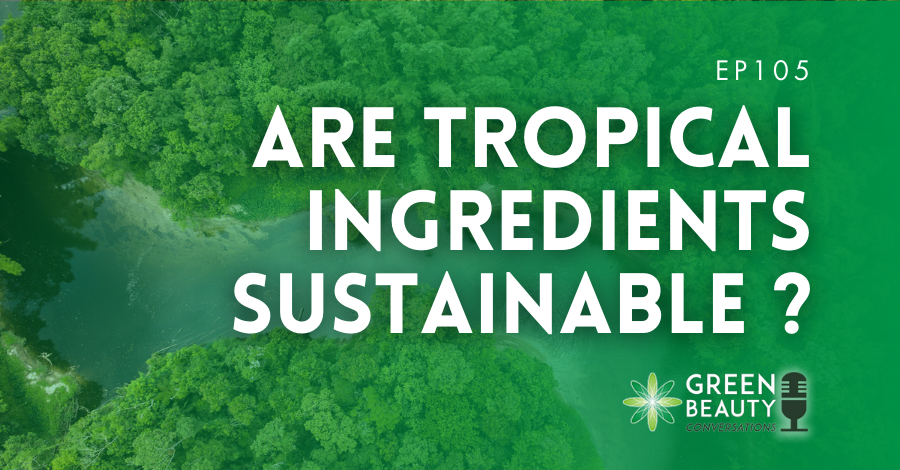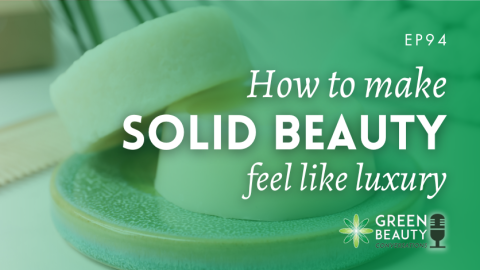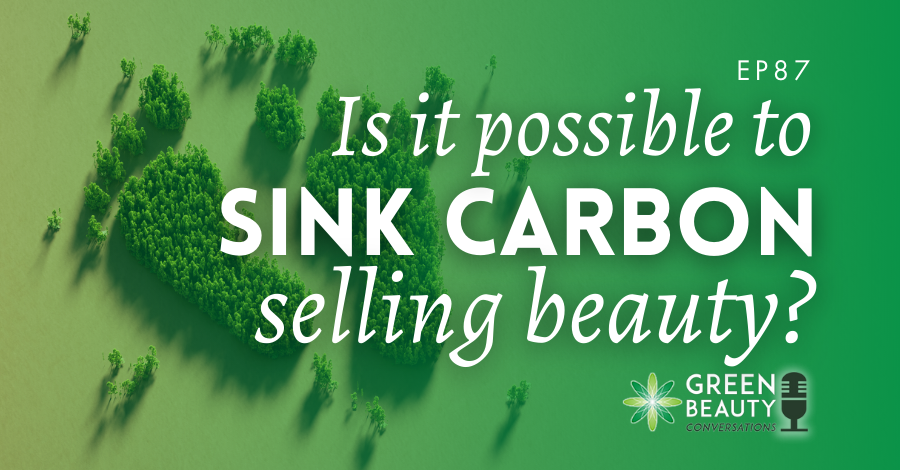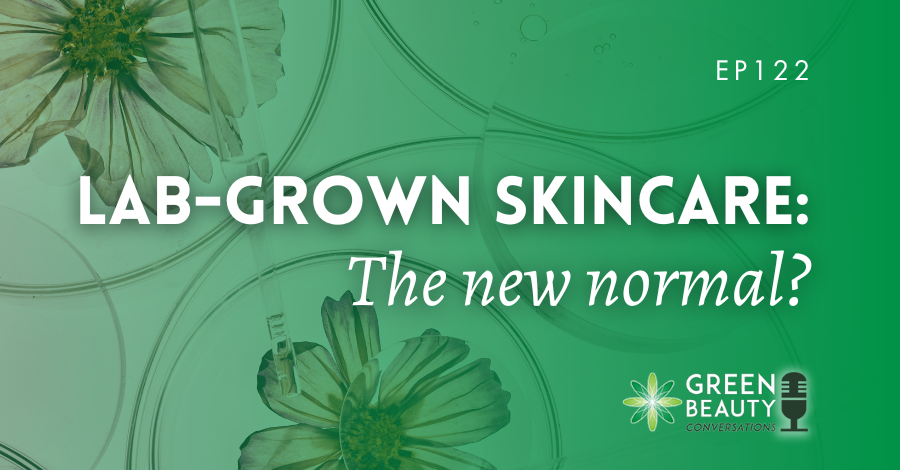We all love getting something for free. How many times have you shopped for a new cosmetic product, online or in store, and been rewarded for your purchase with a bundle of free beauty samples? Some of the sachets popped into your bag or mailer box might have nothing at all to do with the eye cream, cleanser or serum you just bought. But does it matter when we love receiving those little sachets of samples for free?
This podcast episode focuses on these tiny beauty products which are in fact staggeringly wasteful. Each year, the beauty industry creates 122bn units of sample sachets, most of which have no clear-cut way of being recycled. In all likelihood, we consumers don’t need them, don’t use them and certainly wouldn’t like them if we knew that those free gifts have no happy end of life and go on to do untold harm to the planet potentially as ocean-born microplastics or incinerated particles.
Joining Formula Botanica CEO Lorraine Dallmeier to tackle the topic of planet-toxic beauty samples is guest Mia Davis, the VP of Sustainability and Impact at Credo Beauty, which is the largest clean beauty retailer in the US. Mia, a committed, career environmentalist, created the Credo Clean Standard, as well as the retailer’s ambitious and forward-thinking Sustainable Packaging Guidelines.
When Lorraine learned of Credo’s bold step last year of announcing it was no longer providing beauty samples, she knew that something seismic was happening in the industry. So who better to have on the podcast to talk about changing habits of the beauty industry’s lifetime than Mia Davis, who has set not just Credo but also the wider industry the challenge of culling samples for good?
Before you grab a free beauty counter sample, think twice. @FormulaBotanica podcast speaks to #MiaDavis VP Sustainability & Impact @CredoBeauty about how billions of plastic sachets harm the planet. #sustainablebeauty… Share on X
In this episode on the sustainability of beauty samples, you will hear how:
- The beauty industry has to adopt less harmful ways to reward loyalty, thank customers and market new beauty products than giving away tonnes of free samples in single-use plastics.
- Sampling sachets have no value in the recycling world; as they are mostly made of mixed materials, they cannot be recycled and consumers don’t have the information to know how to dispose of them more sustainably anyway.
- There is no definitive research pointing to sampling increasing a beauty company’s customer acquisition rates or showing how it gives a good return on investment.
- Credo advocates for ‘sampling with intent’. Credo makes a low charge of around $1 for samples provided in small jars that can be reused, recycled and even refilled in store. Even with this low charge, customers think twice about the real need to buy samples.
Key takeouts include:
- Indie beauty founders and formulators are keenly aware of sustainability, but often lack in-house expertise or can’t afford to buy green packaging solutions. Partnering with retailers like Credo that provide advice and sustainability guidelines is one way for small indie beauty entities to infuse green goals in their own businesses.
- Research shows time and again that beauty consumers are keen to buy from brands with green credentials. New consumer habits can be normalised if customers are given transparent information about a beauty brand’s sustainability goals and practices.
- Beauty products have complex packaging needs in order to preserve their stability and prevent product contamination. Certain beauty products will need plastic packaging for the foreseeable future to ensure they are fit for sale. Credo stresses that the industry should adopt attainable, if ambition goals of a minimum 50:50 ratio of post-consumer plastics vs virgin petrochemical plastics. Single-use plastics should never be the go-to answer.
- The sustainability issues of small beauty products don’t lie only with sample sachets. For example, the plastic dispensing wands that ship with various larger beauty products also need to be examined through the sustainability lens. We need to ask ourselves, as consumers and industry, if we really need plastic accessory items like this.
Meet our guest: Mia Davis

Mia co-founded the new non-profit membership organisation Pact Collective to start to make a dent in hard-to-recycle beauty waste, and to bring beauty stakeholders together to move towards circularity.
Mia was on the founding team at Beautycounter, where she developed the company’s stance on safety, including the industry-leading “Ingredient Selection Process,” and led sustainability and social responsibility efforts.
She has advised Novi, goop, Honest Company, type:A, ILIA, Bawdy, Sundaily, Merryfield, and more. She lives in Massachusetts with her family.
Find Credo and Mia at:
Website: credobeauty.com.
Instagram: @Credobeauty.
Pact Collective.
Thank you for joining us for this episode of the Formula Botanica Green Beauty Conversations podcast. If you enjoyed listening, please share, subscribe and review this episode on Apple Podcasts, Spotify or Youtube so that more people can enjoy the show. Don’t forget to follow and connect with us on Facebook and Instagram.
FREE TRAINING
Learn how to become an
Organic Skincare Formulator
FREE TRAINING
How to become an
Organic Skincare Entrepreneur
FREE TRAINING
How to become an
Organic Skincare Entrepreneur
Leave us a comment
Lorraine Dallmeier is a Biologist, Chartered Environmentalist and the CEO of Formula Botanica, the award-winning online organic cosmetic science school. Read more about Lorraine and the Formula Botanica Team.

